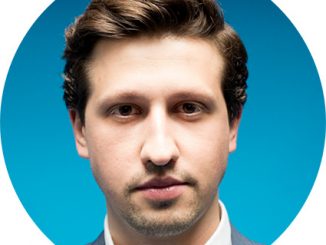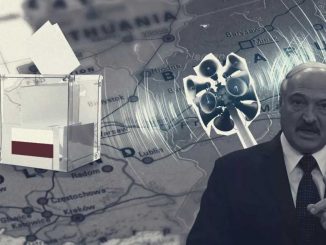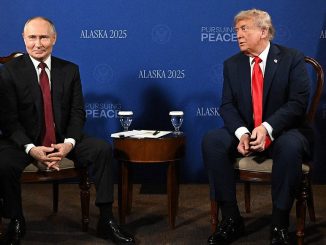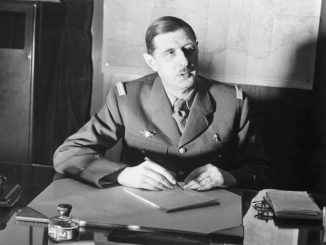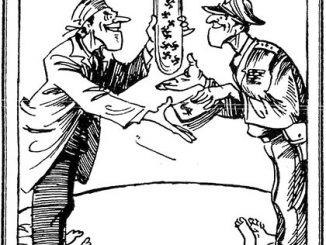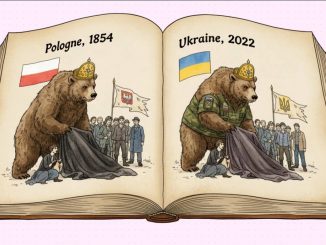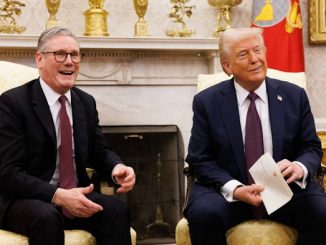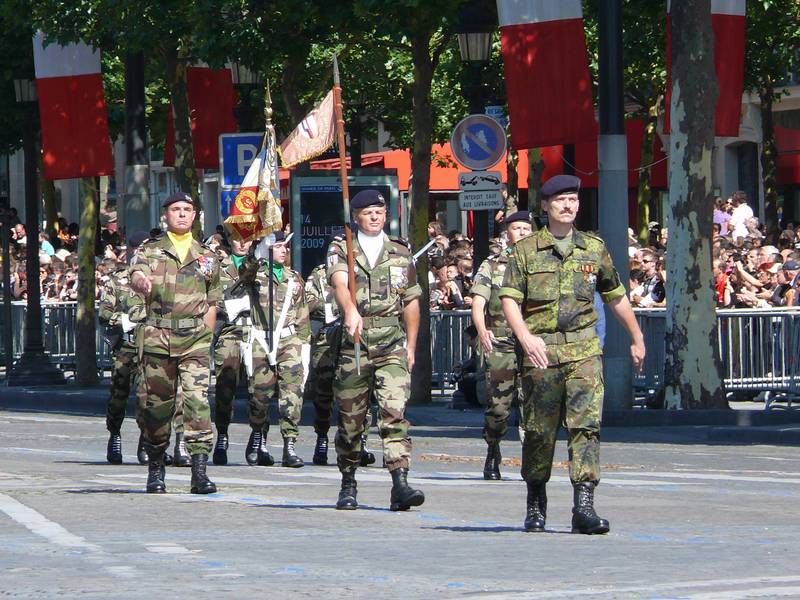In this explosive article, French historian Françoise Thom [1] highlights the close relationship between the late financier Jeffrey Epstein and the father of his accomplice Ghislaine, Robert Maxwell, the late British press magnate, on the one hand, and the upper echelons of Soviet and then Russian power on the other. This raises a troubling question: what if it was the FSB that held the infamous “list” of Epstein’s clients? What better way to compromise the American elite than to possess evidence of participation in orgies with minors?
Table of Contents
by Françoise Thom in Desk Russia — Paris, July 30 —
The Epstein case is associated in the public mind with the scandal of the gigantic pedophile ring that Epstein and his accomplice Ghislaine Maxwell organized and exploited with impunity for years.

The question of the hidden protections enjoyed by the two accomplices gave rise to a proliferation of hypotheses encouraged by Epstein himself, who claimed to “belong to intelligence.” The MAGA movement insists on the role of Mossad in the meteoric career of the pedophile con artist.
Tucker Carlson claims that Epstein was an Israeli agent and that Trump is covering up the case for this reason. The left accuses the CIA of playing a part in Epstein’s quick release after his first arrest in 2008. In 2019, Russian state media had a field day with the Epstein affair, a golden opportunity to denounce “degenerate global elites.” In the U.S., the political debate revolves obsessively around the “client list,” the tree that hides the forest, namely the construction of a blackmail empire whose products are accessible to hostile powers.
As for President Trump, many observers have been surprised that he equates the Epstein affair with what he calls the “Russia Hoax,” the investigation into Russian interference in his favor during the 2016 election: “Why is he linking Epstein to Russia?” asks Christopher Steele, a former agent of the British Secret Intelligence Service and a Russia specialist. “It’s clear that in his mind, Epstein is associated with Russia.”
The Russian connection: what is documented
There is no record of Epstein traveling to Russia before 2014. This does not mean that Epstein never visited Moscow before earlier (see below). Epstein’s Russian connection was first documented after the publication of an in-depth investigation by the Dossier Center, a hacker organization funded by Mikhail Khodorkovsky. It revealed that there was a genuine partnership between Jeffrey Epstein and the Kremlin that was highly profitable for both parties. Epstein had a contact at the highest level with Moscow. He was interested in exploiting the exceptional financial opportunities offered by Russia; the Kremlin was eager to seek advice from this expert in tax havens and money laundering, enlisting his help in offering a cover to Russian agents sent to the U.S., and calling on his talents as a recruiter to arrange access to American targets of interest to the FSB. This relationship of trust was not built overnight and must have existed well before 2014.
Epstein’s contact was Sergei Belyakov, then Deputy Minister of Economic Development and, later, Director of the St. Petersburg International Economic Forum (SPIEF) Foundation. His mission was to attract foreign investment.

The St. Petersburg Economic Forum is a favorite hunting ground for attractive escorts tasked with harpooning businessmen on behalf of Russian services.

Unsurprisingly, Belyakov is also a graduate of the FSB Academy. His career has risen rapidly. He was an advisor to oligarch Oleg Deripaska, then assistant to the Minister of Economic Development, Elvira Nabiullina, who now heads the Central Bank of Russia. Documents hacked by the Dossier Center team reveal that in the spring of 2014, Belyakov sought Epstein’s advice on how to circumvent Western sanctions.
- « One of these was the so-called ‘new Bank’ that “could be modeled after a capitalistic commercial bank, lending 9 times its reserves NOT the world bank, those models are antiquated”, he proposed.
- Epstein also suggested launching an alternative to bitcoin known as BRIC and the possibility of providing loans worth ‘500 billion’ (though he did not specify the currency). Moreover, Epstein believed that Russia could create new currencies pegged to oil or develop ‘smart contracts’ regulated by computers. In addition, Epstein shared his views on the Russian economy with Belyakov. For example, when in December 2014 the Russian Central Bank raised its benchmark rate to 17 per cent, Epstein wrote: “Bad advice to raise rates. it sends the wrong sign.”»
Epstein was thus feeding the Kremlin strategies to counter the economic war waged by the West.

In addition, he used his network to send leading Western business executives of interest to the Kremlin, such as Reid Hoffman (co-founder of LinkedIn) and Nathan Myhrvold (former chief technology officer at Microsoft), to the St. Petersburg Economic Forum for possible recruitment.


This assistance was crucial for Moscow at a time when many Westerners were boycotting Russia. In July 2014, Belyakov, then Russian Deputy Minister of Economic Development, personally intervened to help Jeffrey Epstein obtain a Russian visa. He arranged a series of high-level meetings for him in Moscow. These were with leading figures at the heart of Russian economic policy: Deputy Finance Minister Sergei Storchak, Central Bank Deputy Chairman Alexei Simanovsky, and even the Minister of Economic Development himself, Alexei Ulyukayev. But here again, the mystery remains : it is not known whether Epstein’s visit actually took place.
Among wellbred men, small favors are usual. In July 2015, Epstein contacted Belyakov with an urgent problem: a “Russian girl from Moscow, Guzel Ganieva,” was in New York and “trying to blackmail a group of powerful businessmen.” Ganieva had ensnared a close friend and associate of Epstein, billionaire Leon Black. No problem: Belyakov provided Epstein with a detailed intelligence file on Ganieva, who he claimed was working alone and would be highly sensitive to the threat of deportation from the United States. Leon Black paid huge sums to Epstein.
The U.S. Senate Finance Committee reviewed part of a confidential Treasury Department file on Epstein. The file shows that Epstein used several Russian banks, now under sanctions, to process payments related to his sex trafficking network. A significant number of his victims came from Russia, Belarus, and other East European countries, establishing a direct financial link between his criminal enterprise and financial institutions in the region. The scale of the transactions is staggering: one of his bank accounts alone recorded 4,725 transfers totaling nearly $1.1 billion, representing thousands of potential leads for investigation.
This was not just a matter of Epstein providing minor services to the Kremlin. The sex trafficking was a cover for something else. It turns out that Epstein had a predilection for Russian female employees. His assistant, Svetlana (Lana) Pozhidaeva, obtained an O-1 talent visa for the United States thanks to a letter of recommendation from Belyakov.

This lady deserves our attention. A graduate of the prestigious Moscow State Institute of International Relations (MGIMO), the Foreign Ministry’s academy that trains Russian diplomats and intelligence agents, she is multilingual, but her career took an unexpected turn. Despite her brilliant studies, she ended up becoming a model, represented by MC2, a modeling agency owned by Frenchman Jean-Luc Brunel, a sexual predator and Epstein’s pimp (arrested in 2020, he was found hanged in his cell, like Epstein). She moved to the United States and became an associate of Jeffrey Epstein.

She became involved in charity work, chairing a foundation supporting women entrepreneurs and Education Advance, a New York association whose aim is to support science and technology in education; most of the $56,000 in funding for the latter was provided by Epstein in 2017. Epstein also donated $50,000 to Pozhidaeva for the Open Cog Foundation, a project to develop an open-source artificial intelligence framework. Epstein also offered her the opportunity to study and attend conferences with scientists. “What she liked was that he gave a lot to science and helped researchers and interesting people,” a source told the Irish Mail on Sunday.

For Yuri Shvetz, a KGB defector who was one of the first to show how Epstein’s network had converged with that of the FSB, Pozhidaeva’s case is clear: “How could some-one as smart and educated as Pozhidaeva become a women’s rights activist while possibly seeking the support of Jean-Luc Brunel and Jeffrey Epstein, who led and participated in human trafficking and the rape of underage girls for more than two decades?”
There is only one explanation. She was an agent infiltrated with the help of Jeffrey Epstein to penetrate “the American network linked to supercomputers and artificial intelligence.”
Jean-Luc Brunel, the recruiter who allegedly supplied more than a thousand minors to his friend Jeff Epstein. Photo Robert Espalieu
Shvetz recalls that Putin considers artificial intelligence, supercomputers, and control of advanced information technology to be the most crucial national security issue for Russia, “as essential to the survival of his regime as the atomic bomb was to Stalin.”
”Seventeen thousand Russian computer scientists work in the United States, and many of them are linked to Russian intelligence services—brilliant people who have been employed by Apple, Microsoft, and other companies for years.”

Another Russian collaborator of Epstein’s, Masha Drokova, followed a similarly unusual path to infiltrate Silicon Valley. This fervent supporter of Vladimir Putin, a former activist in the Nashi youth movement, was initially tasked with befriending (and more if possible) Russian opponents.

She became an associate of Konstantin Rykov, the Kremlin’s “chief troll” and a key figure in the Senate investigation into Russian interference in the U.S. elections. Having obtained an E16 visa (also known as an “Einstein visa,” intended for “foreigners with extraordinary abilities”) thanks to the intervention of Esther Dyson, an old acquaintance of Epstein who sits on the board of directors of Russian search engine giant Yandex N.V., she moved to the United States where she became press secretary for Jeffrey Epstein.
Drokova’s real task appears to be finding American investors for Russia to finance technologies that could be particularly useful to the Kremlin. Coincidentally, in 2016, she began to invest in technology start-ups, targeting NtechLab, which is now at least 37% owned by Rostec, i.e., by the Russian government. NTechLab uses AI to analyze big data.
Other examples include Impulse VC, a Moscow-based company backed by Russian oligarch Roman Abramovich, and StealthWorker, a service that connects employers with cybersecurity professionals. She has also invested more than $4 million in the artificial intelligence start-up DigitalGenius.

But that was only the beginning. In 2017, Drokova raised funds for Day One Ventures, a Silicon Valley venture capital fund she set up. She has raised more than $70 million to date. Documents filed with the U.S. Securities and Exchange Commission show that Day One Ventures is backed by a small group of wealthy individuals, most likely from Russia.
Epstein’s shenanigans have caused trouble for Deutsche Bank, which was fined $150 million by New York regulators for knowingly exempting wealthy and high-risk clients, such as Epstein and Russian oligarchs, from normal internal controls. Specifically regarding Epstein, Deutsche Bank processed payments to women with East European surnames and suspicious cash withdrawals without responding to obvious red flags. The same institutional flaws that allowed Russian money laundering also facilitated the financing of Epstein’s sex trafficking. The New York banking regulators’ report states that the Deutsche Bank team monitoring Epstein’s accounts received an alert “concerning payments to a Russian model and a publicist,” but the bank’s monitoring team ignored the alert. JPMorgan Chase had a similar mishap: it had to settle two federal lawsuits totaling $365 million alleging that the bank had laundered money for Jeffrey Epstein from at least 1998 to 2013. The same bank transferred more than $1 billion to a company owned by Russian mafia boss Semion Mogilevich between January 2010 and July 2015.
Epstein’s sex trafficking thus served to conceal another essential mission he carried out on behalf of Russian intelligence: providing cover for Russian beauties tasked with infiltrating Silicon Valley.
This is probably where we should look for the origins of the pro-Russian orientation of many of the Big Tech giants. The Wall Street Journal reports that Epstein arranged meetings in 2006 between Peter Thiel and the Russian ambassador to the United Nations, Vitaly Churkin. Three days after Churkin’s death, Epstein sent this email to Peter Thiel:
“My friend the Russian Ambassador is dead. Life is short, let’s start with dessert.”
Vitali Tchourkine — Photo Luca Marfe

Epstein’s address book is full of names that could be of interest to foreign intelligence services. In 2014, Epstein met three times with William Burns, who was then Deputy Secretary of State in the Obama administration. President Biden appointed Burns as head of the CIA in 2021.
In 2016, Epstein began cultivating Trump’s entourage. He told all and sundry that Trump could win. He attempted to reconnect with Tom Barrack, a financier and close ally of Trump with whom Epstein had ties in the 1980s. In August, he organized a lunch with Barrack, who was an informal advisor to the Trump campaign at the time. Barrack was also invited to Epstein’s home in September 2016 with Vitali Churkin and Woody Allen. Between 2015 and 2017, the year of his death, Churkin met with Epstein at least eight times. One can imagine that the Russians appreciated Epstein’s high-level connections in politics, business, and academia. Epstein and Ghislaine Maxwell had access to the heart of the British monarchy. Epstein is reported to have said: “There’s only one person who loves sex more than I do, and that’s [Prince] Andrew.”

In light of the above, one can only agree with the conclusions of Niels Groeneveld, a Dutch cybersecurity expert: “Epstein’s interactions with the Russian elite were not just social or financial; they were strategic, part of a complex network of power, influence, and espionage that linked him to the most powerful circles in Moscow […]. Epstein’s expertise in managing complex financial structures made him a valuable asset to Russian oligarchs seeking to protect their wealth from political instability and economic sanctions. In return, Epstein gained access to influential Russian figures, establishing himself as a trusted advisor and financier within the Moscow elite. These relationships were mutually beneficial, allowing Epstein to expand his financial empire while providing Russian oligarchs with strategic footholds in Western markets. Epstein’s influence in Russia extended beyond financial transactions. He had relationships with political figures who wielded considerable influence within the Kremlin. These relationships were not merely social: they were strategic alliances designed to give Epstein political clout and protection.
Epstein’s political network in Russia included senior Russian government officials, influential advisers close to Vladimir Putin, and members of the Russian security and intelligence services. These relationships gave him access to sensitive political information and strategic insights into Kremlin policy, making him an authority on the subject. […] One of the most significant aspects of Epstein’s relationship with Russia is the silence surrounding it. Despite his close ties to the Russian elite, Epstein’s activities have been largely ignored. This silence is not simply a matter of discretion; it reflects the shield of power and influence that surrounds the Russian political elite.”
The big question is how far back Epstein’s relationship with the Kremlin goes. Was the FSB behind the large-scale “kompromat” operation deployed on U.S. soil, or did it simply jump on the bandwagon and use its output like any other customer? Was Epstein just a front man, or did he set up his own trafficking ring?

“Where did the money come from?”
Let’s take a look at Epstein’s tortuous biography. Born in 1953, he taught mathematics and physics at a private high school without a degree. In 1980, he began a career as a trader at Bear Stearns, in the department dedicated to “special products” and tax strategy advice for the company’s wealthiest clients. It appears that his blackmail activities initially consisted of finding ways for his clients to evade taxes and then “holding” them with this “kompromat.” He left Bear Stearns in April 1981, when the company was under investigation for insider trading. In 1982, he founded his own financial management company (J. Epstein & Co). He boasted that he would only accept clients with assets worth over $1 billion. “This is where the mystery thickens. According to legend, Epstein immediately began collecting clients in 1982,” writes Landon Thomas, his first biographer.

But he kept all his contracts and clients secret, with one exception: billionaire Leslie Wexner. A former friend of Epstein’s, journalist Jesse Kornbluth, recounts: “When we met in 1986, Epstein’s double identity intrigued me: he said he didn’t just manage the money of clients with colossal fortunes, but that he was also a high-level bounty hunter. He sometimes worked for governments to recover money stolen by African dictators. Other times, these dictators hired him to help them hide their stolen money.”
Leslie Wexner — Photo Union20
Epstein once told journalist Michael Wolff that he practiced the opposite of a Ponzi scheme. “In a Ponzi scheme, you make people believe that money exists although it doesn’t exist; in my scheme, money that exists appears not to exist.”
In 1987, Jeffrey Epstein was introduced to Steven Hoffenberg by a British arms dealer named Douglas Leese, for whom Epstein was consulting in the United Kingdom.

Hoffenberg ran Towers Financial Corporation, a debt collection agency. Leese recommended Epstein to him in these terms: “This guy is a genius. He excels at selling securities and he has no morals.” This indicates how extensive Epstein’s networks already were at that time. Douglas Leese had close ties to an offshore bank, the Bank of NT Butterfield in Bermuda. He is said to have been Epstein’s mentor, facilitating his entry into high-level financial circles linked to the arms industry. Epstein had an Austrian passport under a false name listing Saudi Arabia as his primary country of residence. This passport dated back to the 1980s.
Hoffenberg hired Epstein between 1987 and 1993 to help him manage Towers Financial Corporation, paying him $25,000 a month and granting him a $2 million loan in 1988 that Epstein never had to repay.

Hoffenberg set up a Ponzi scheme, committing the largest financial fraud in American history before Bernard Madoff. He and several employees were arrested and imprisoned in 1994, but Jeffrey Epstein was not prosecuted.
According to journalist Vicky Ward, he most certainly cooperated secretly with the prosecution against Hoffenberg and gave at least three interviews to prosecutors. If his case had gone to trial, a well-informed source claims that it would probably have been much worse for Epstein than for Hoffenberg. The latter claimed that it was his protégé Jeffrey Epstein who had orchestrated the scam.
Vicky Ward — Photo Askryan
In 1987, billionaire Leslie Wexner, founder and chairman of The Limited (a chain of women’s clothing stores), became Epstein’s only known client, giving him the rights to his famous townhouse for free in 2011, years after they were supposed to have lost contact. Epstein soon began managing Wexner’s finances. Wexner’s associates never understood the hold Epstein had over their boss. Shortly after they began working together, Epstein moved into Wexner’s Upper East Side home. “It’s a strange relationship,” commented a Wall Street trader who knows Epstein. “It’s just unusual for someone that rich to suddenly give his money to a stranger.” In 1996, Epstein renamed his company The Financial Trust Company and “relocated” it to the island of St. Thomas (a tax haven) in the U.S. Virgin Islands. Wexner’s credibility made it plausible that Epstein was making billions from his Caribbean stronghold.

Epstein bought two neighboring islands in the Caribbean. In 1998, he paid $7.95 million for Little Saint James, a 30-hectare island on which he built a luxurious palace rigged with microphones and cameras “like a CIA safe house.” This is where he would organize his orgies, transporting his guests aboard the Lolita Express, which he acquired in 2003. In 2016, Epstein spent more than $20 million on Great Saint James, a 65-hectare island.

“Almost everyone has heard of him, but no one seems to know what he’s up to,” people said about him on Wall Street at the time. “It’s unusual for animals that big not to leave any footprints in the snow.” Mathematician Eric Weinstein met him once and came to the conclusion that Epstein was a “construction” “something that is not human.”

In the wake of Robert Maxwell
Epstein’s strategy of targeting high-level relationships, including in hostile countries, and navigating the murky waters of the intelligence services for personal gain seems to have been copied from that of an illustrious predecessor, Robert Maxwell, the father of his partner Ghislaine.
Robert Maxwell’s career was in a way a pioneer of the Putin model. It involved the fusion of media power, sophisticated financial fraud, and the exploitation of links with state intelligence services for personal gain and protection. Maxwell was a master at manipulating the institutions of capitalism and intelligence and turning them against themselves.

A Czech Jew, he joined the resistance during the war. From that time on, as was common in the resistance, Robert Maxwell navigated between various intelligence services: British, Zionist, and Soviet. In 1945, he was tasked by the British intelligence with interrogating captured German scientists, work probably carried out in collaboration with the Alsos mission, a branch of the American Manhattan Project that cooperated with British forces to collect and classify information on the German atomic weapons program.
Robert Maxwell — Photo Dutch National Archives (1989)
He began collecting German and Russian scientific and research documents unknown in the Anglo-Saxon world. He proposed a daring deal to MI6: that they help him finance the purchase of a scientific publishing house. In return, the company would serve as a cover for his activities, allowing him to travel, establish contacts with scientists around the world, including behind the Iron Curtain, and gather valuable intelligence for London. In 1951, with MI6 funding, he acquired Pergamon Press, a small publishing house, and signed a golden agreement with the Soviet copyright agency VOuAP, later VAAP. He began publishing English translations of Soviet academic journals. He transformed Pergamon into a global giant in scientific and technical publishing. This success brought him considerable wealth and stature. While MI6 appreciated his services, MI5 (counterintelligence) harbored a deep and persistent mistrust of him. His Foreign Office file described him as a “a thoroughly bad character and almost certainly financed by Russia.” In the 19502s, the FBI investigated his links with Moscow but concluded that there was no evidence that Maxwell was involved in “acts of espionage.” In 1964, he was elected Labour MP and held his seat until 1970.

In 1968, he publicly defended the Soviet intervention in Czechoslovakia, arguing that it was necessary to preserve security in Europe. He was rewarded with an invitation to Moscow from Brezhnev. Maxwell spoke to Brezhnev’s heart: he loved cars and hunting, and he was a heavy drinker. After Brezhnev’s death, Maxwell remained in contact with the new general secretaries—Andropov, Chernenko, and Gorbachev. He was allowed to enter the Soviet Union six times a year.
He became the Kremlin’s chief propagandist for the Soviet system abroad. According to Stanislas Lekarev, a KGB colonel, “V. A. Kriuchkov [Editor’s note: the head of the KGB] personally met him several times during [Gorbachev’s] period. During these meetings, it was decided that Maxwell, in the interests of the KGB, would launch a magazine in London and also finance the operation of a film studio in Moscow, which would produce films based on KGB scripts. The KGB resident in the United States, General D. Yakushkin, also ‘worked’ with Maxwell. In June 1991, General L. Shebarshin [Editor’s note: head of the KGB’s foreign intelligence service] met with him in London. It is difficult to believe that all these KGB contacts had any illusions about Maxwell. After all, when such people cooperate with intelligence services, they work primarily for themselves. Despite this, several KGB chiefs received promotions and government awards for their contacts with Maxwell.”

In the 1970s, Pergamon Press prospered thanks to the publication of such bestsellers as the works of Soviet leaders: five by Brezhnev (including a masterpiece, In the Name of Peace on Earth), one by Chernenko, and one by Andropov, then head of the KGB. This abundant output was financed by Moscow. Maxwell contributed greatly to the “Gorbymania” that swept the West. Although KGB officers were wary of him because of his links with MI6, the party appreciated him as an agent of influence. The Central Committee’s agitprop department generously financed Maxwell’s services from public funds. All this bounty was welcome as clouds began to gather over the Maxwell empire. In 1969, a British Department of Trade and Industry investigation into his management of Pergamon Press revealed that he had artificially inflated Pergamon’s share price through transactions with his private family companies. To protect himself, Maxwell implemented his strategy of using his wealth and media influence to gain access to world leaders, including those in the Eastern Bloc, the U.S., and Israel. To curry favor with dictators such as Nicolae Ceausescu in Romania and Todor Zhivkov in Bulgaria, he published flattering biographies about them. He had access to Ceausescu, Honecker, Husak, and Kadar. Maxwell’s chronic need for money led him to capitalize on his address book and the information obtained through his networks by selling it to secret services. His links with MI6, the KGB, and Mossad were not ideological. State secrets were a commodity intended to fill his abysmal financial deficits.

Maxwell thought big. In the 1980s, he acquired the British Printing Corporation (BPC), then, in 1984, the Mirror Group Newspapers, which published the Daily Mirror, among others. But in 1991, this unrepentant juggler was on his last legs. His naked body was found floating in the Atlantic Ocean off the Canary Islands, not far from his luxury yacht, the Lady Ghislaine. Accident, suicide, or murder? The mystery remains. After his death on November 5, 1991, it was discovered that he had plundered his own employees’ pension funds. To fill the gaping holes in his finances and secure ever-larger loans, Maxwell had embezzled approximately £460 millions from the Mirror Group’s pension funds and other companies.
The Sunday Express claims that a secret document signed by the head of the KGB just months before Maxwell’s mysterious death showed that he was such a high-ranking asset for the Kremlin leadership that they had asked the KGB intelligence services to protect Maxwell’s personal reputation and business activities.
Dangerous liaisons
Ghislaine was Robert Maxwell’s favorite daughter, his emissary and confidante, deeply involved in his business affairs. The exact date when Ghislaine Maxwell and Jeffrey Epstein met for the first time is shrouded in mystery. Shortly after her father’s death, fleeing scandal in the UK, Ghislaine Maxwell moved to New York. It was long believed that she met Jeffrey Epstein at a party in New York in the early 1990s.
Their relationship was not love at first sight, but an immediate close partnership. A video from the NBC archives, dated November 1992, provides the first irrefutable evidence of their association. It shows them together with Donald Trump at a party in Mar-a-Lago, Florida.
Testimony from Epstein’s staff confirms Ghislaine Maxwell’s rapid rise. As early as 1992, she was introduced as his “main girlfriend.” Federal indictments attest that the criminal conspiracy to “entice minors to travel to commit illegal sex acts” began “at least in 1994.” Her friends say that “at a party at Maxwell’s house, you were just as likely to meet Russian call girls as Prince Andrew.” Maxwell became the co-architect of a financial and criminal empire.
The date when Epstein and Ghislaine Maxwell met for the first time is crucial, as the question of Robert Maxwell’s operational (and other) legacy is key. Steven Hoffenberg offers a different timeline from the one commonly accepted. Here is his version, as reported by Vicky Ward: “Hoffenberg told me that in the 1980s, after Epstein left Bear Sterns in disgrace, he was trained in offshore money transfers and knew one of his mentors, a British arms dealer who died in 2011 called Douglas Leese. […] Hoffenberg told me that Leese had played a crucial role in understanding Jeffrey’s modus operandi, as he had introduced him not only to European aristocrats (whom Epstein later fleeced), but also to all kinds of people in the arms industry—including the late Saudi businessman Adnan Kashoggi—and, it seems, the late media mogul Robert Maxwell. […] Hoffenberg told me that Epstein had said he had worked on several projects with Robert Maxwell, including resolving Maxwell’s ‘debt’ problems. » Epstein also told Hoffenberg that, through Maxwell and Leese, he was involved in something Hoffenberg described as ‘national security issues, ‘ which he said involved ‘blackmail, influence peddling, information trading at a very serious and dangerous level.’”
Hoffenberg’s allegations regarding the date of the meeting between Epstein and Ghislaine Maxwell were met with skepticism but were confirmed during Ghislaine Maxwell’s trial. The prosecution revealed that she had traveled on the New York millionaire’s private jet as early as July 1991, four months before her father’s death. The theory of a business association between Robert Maxwell and Epstein in the 1980s is taken seriously by Christopher Steele.
So Epstein knew Robert Maxwell when he was alive. Was he a protégé and disciple of the British magnate?
Did Maxwell want to make him his heir apparent by introducing him to his daughter in 1988, as Hoffenberg and other sources claim? The financial links between Epstein and Ghislaine’s father were mentioned by Jean-Luc Brunel in conversations nearly 20 years ago. “Jean-Luc told [his acquaintances] that Ghislaine’s father, Robert Maxwell, was one of the reasons why Jeffrey Epstein had money. He said that Maxwell had been one of Epstein’s first investor clients,” one of the Frenchman’s former close associates told The Sun.
There are many similarities in the modus operandi of the two men. We need to try to untangle Maxwell’s activities from 1988 onward in the USSR and Eastern Europe, because Epstein, with his genius for tax evasion and his virtuosity in offshore banking, must have been involved, given Brunel’s testimony quoted above.
This was a period when the communist regime was falling apart. The main concern of the apparatchiks who sensed the storm coming was to place the Communist Party’s assets in a safe place. Between 1989 and 1991, the KGB transferred to the West 8 tons of platinum, 60 tons of gold, truckloads of diamonds, and up to $50 billion in cash.
The cash part was in rubles, an officially non-convertible currency. But the Soviets made it convertible by creating a vast network of shell holding companies across the West. Those responsible for transferring the money on the Russian side were Colonel Leonid Vesselovski, a KGB financial genius seconded to the Central Committee’s administrative department, and Nikolay Kruchina, head of that department.
The KGB and its contacts abroad were called upon to help. «The focal point of that transfer activity in the West was Maxwell, the midwife overseeing the birth pains of the so-called Soviet oligarchy», wrote Russian dissident Alexander Boot.
Nikolai Yefimovich Kruchina — Photo Ilya Filatov

The collapse of the USSR was a blow to Maxwell but he quickly realized that other opportunities arose in Eastern Europe. KGB Colonel Stanislav Lekarev (1935-2010) details Maxwell’s new activities: “Maxwell cooperated, but he never forgot his own financial interests. He helped socialist countries set up joint ventures abroad, but not for free. Two billion dollars, secretly paid upfront by the Bulgarian government to launder drug money, disappeared into Western banks. Maxwell offered bank accounts in Liechtenstein to senior Soviet Party officials. In return for his services in opening such accounts for KGB agents and Communist Party representatives, Maxwell received commissions. At MI5, this information was considered particularly valuable.”
In August 1999, the New York Times revealed what could be the largest money laundering operation ever detected in the United States. Investigators suspected that an account opened at the Bank of New York had been used to launder money from the Russian mafia, as the collapse of the Russian financial system the previous year had accelerated capital flight. The amount involved was estimated at $10 billion.

And the case led to Semion Mogilevich, one of the big bosses of the Russian underworld, linked to the KGB. Mogilevich was involved in arms trafficking, drug trafficking, prostitution, and investment fraud. Robert Maxwell had opened the door to the Western financial world for him in 1988. He obtained Israeli passports for the godfather and 23 of his associates. Thanks to these passports and access to an account that Maxwell had set up at the Bank of New York, Mogilevich was able to expand his criminal network across Europe.
Reward of US$5,000,000 for information leading to the arrest of Semion Mogilevich, convicted of wire fraud, conspiracy under the RICO Act, mail fraud, conspiracy to launder money, money laundering; aiding and abetting; securities fraud; filing false documents with the SEC; falsifying books and records… — Photo FBI
According to the testimony of defector Alexander Litvinenko, Mogilevich had maintained “good relations” with Putin since 1993 or 1994.
The empire of “kompromat”
Upon Maxwell’s death, Epstein inherited more than just his favorite daughter. He shared with him a genuine taste for science (mathematician Eric Weinstein claims that he was obsessed with gravity). He gave the impression to scientists that he was the only one who could finance something innovative, inspiring them to take risks. Epstein also inherited part of Maxwell’s networks. All American observers wondered where the colossal fortune that allowed him to live a “maharajah’s life” came from. In fact, it was the life of a Russian oligarch. A photo taken in 1998 shows Epstein posing with Esther Dyson outside Andrei Sakharov’s house, proving that Epstein had visited Russia in the 1990s without any trace in the flight logs.

Post-communist Russia was a gold mine for resourceful and unscrupulous individuals. Epstein was able to make useful observations there. During the Yeltsin years, a new instrument of political control emerged: “kompromat.” KGB officers who found themselves penniless after the end of the USSR recycled themselves into the lucrative business of compiling compromising files that the oligarchs fought over in their merciless fratricidal struggle. Putin went further, turning “kompromat” into an instrument of power (in 1999 he destroyed prosecutor Yuri Skuratov, who was investigating the Yeltsin family and its protégés, by filming Skuratov in a sauna surrounded by beautiful naked women: a service that was decisive in Yeltsin’s choice of his successor).
Putin then transformed “kompromat” into an instrument of government.
The collection of “kompromat” is one of the essential tasks of the presidential administration, whose functions he redefined upon coming to power in 2000. It should be “able not only to predict and create the ‘necessary’ political situation in Russia, but also to actually direct political and social processes in the Russian Federation, as well as in neighboring countries.” With the help of the special services, “files on opposition parties, their activities, financing, contacts, and supporters” had to be compiled. Compromising files must also be compiled on “political figures at the federal, regional, and local levels,” which will make it possible to “bring the activities of these figures under the influence of the Kremlin.[3] Putin chose collaborators who all had skeletons in their closets, and he compiled files on everyone who mattered in Russia. Once the country was under his control, he applied these methods abroad. He used “kompromat” to bring down neighboring governments he did not control. Better still, Kremlin strategists gradually realized that “kompromat” is much more than a means of controlling foreign leaders. It is the equivalent of a nuclear weapon against democracies: all you have to do is drag all the elites, politicians, businessmen, scholars, and clergy through the mud for representative institutions to lose their raison d’être. The goal of Russian propaganda is no longer to paint an idealized picture of Russia, but to persuade citizens of democracies that their compatriots, and especially their elites, are all capable of the worst. In a world populated by crooks and perverts, only a dictatorship can offer salvation.
That is why Epstein’s enterprise, the creation in the United States of a “kompromat” supermarket whose merchandise is accessible to anyone who pays, could only delight the Kremlin. Epstein cultivated the cream of American society and the international jet set. According to Eric Weinstein, he felt that to be accepted into the elite, one had to agree to have a skeleton in one’s closet, otherwise one was not considered trustworthy. He provided the skeletons. Epstein understood that the rich control everything except their reputation. For a clever man, there was a gold mine to be exploited. Epstein negotiated his silence and became a billionaire.
Eric Weinstein — Photo Rebel Wisdom

Epstein was arrested in 2006 and indicted by a grand jury on charges of soliciting prostitution. That same year, an investigation began into alleged sexual relations with minors. According to Vicky Ward, Epstein traveled to Israel in 2008, hoping to settle there permanently and avoid prison for the charges against him. Upon his return, he told Russian model Kira Dikhtyar that he had changed his mind and decided to fight back (he did not mention that he had avoided a much more serious federal investigation thanks to a deal with the prosecution). After pleading guilty to one count of solicitation of prostitution and one count of solicitation of a minor, Epstein served 13 months in prison in Palm Beach County. Later, prosecutor AlexanderAcosta said that he had been told to back off, that Epstein was an intelligence asset.
“Upon his release from prison, during the last ten years of his life, Epstein boasted to various people, including journalists, that he advised a whole series of foreign leaders, including Vladimir Putin, Mohammed bin Zayed, Mohammed bin Salman, various African dictators, Israel, the British, and, of course, the Americans.” He also told several of these same people that he had made his fortune through arms, drug, and diamond trafficking. Vicky Ward believes that it is because he no longer kept quiet that he was abandoned by his backers: “It is therefore not surprising that the same sources who claim to know that he was an intelligence asset claim that he has become a risk—which may explain why he lost all ‘protection’ and was arrested. A handful of people I interviewed, including former Mossad agent Victor Ostrovsky, claim that this is exactly what happened to Robert Maxwell, and that this is why, in their opinion, Maxwell was killed. His financial problems were about to make him vulnerable. […] When I think back to 2002, when I first met Steve Hoffenberg, I remember asking him why he thought the usually reclusive Epstein had come out of the shadows and attracted media attention by inviting Bill Clinton to Africa. Hoffenberg smiled. ‘He can’t help himself. He’s broken his own rules,’ Hoffenberg said. ‘He always said he knew the only way to get by was to keep a low profile, but now he’s ruined everything.’”

Jeffrey Epstein was arrested on July 6, 2019. On August 10, 2019, he was found dead on the floor of his cell at the Metropolitan Correctional Center in New York.
The relationship between Epstein and Trump
Their relationship appears to go back to the 1980s. The two men were close friends until 2004. Epstein helped Trump evade taxes. The New York Times reported that in 1992, Mar-a-Lago hosted a “calendar girl” contest in which about 20 women flew in to participate. But the only guests present were Trump and Epstein. Trump told New York magazine in 2002 that Epstein was a “terrific guy.” He traveled on Epstein’s jets between Palm Beach and New York, according to flight logs. They visited each other’s properties.

But the friendship ended when the two men argued over a bid for the same beachfront property in Palm Beach in 2004. The property, acquired by Trump for $41 million right under Epstein’s nose, was sold for $95 million to Russian oligarch Dmitry Rybolovlev after Trump had the faucets painted gold. Epstein was furious and claimed that it was a money laundering operation. As a result, according to him, Trump took revenge by reporting him to the Palm Beach police, which was the beginning of his legal troubles.
Michael Wolf: 100 hours of recordings with Jeffrey Epstein and four books on Donald Trump… — Photo Grace Villamil
Journalist Michael Wolff heard Epstein say: “The problem with Trump is that he has no scruples.”
After Trump and Epstein broke up, Steve Bannon began to socialize with Epstein assiduously. Michael Wolff, who recorded lengthy conversations with Epstein, believed that hatred of Trump had brought the two men together.

Mark Epstein, the late financier’s younger brother, told the New York Post that his brother had once confided in him that he knew damning details about Hillary Clinton and Trump. “Here’s a direct quote: ‘If I said what I know about both candidates, they would have to cancel the election,’” Mark Epstein said.
The declassification of the Epstein files was one of the rallying cries of the MAGA presidential campaign in 2024. Vice President J.D. Vance spent years calling for their release before becoming Trump’s running mate. MAGA hoped to compromise the Deep State elites accused of covering up the case and use the Epstein “kompromat” to “drain the swamp” in Washington. Conspiracy theories and slander are the driving forces behind revolutions. Revolutions devour their children. The conspiracy theories on which Trump based his campaign are turning against him. But far from learning the lessons of this fiasco, Trump believes he can save himself by denouncing new conspiracies, further fueling the revolutionary dynamic that is overwhelming him. Instead of wondering why the Epstein affair is blowing up in his face just as he has decided to arm Ukraine, why it is precisely the Russian party within the Trumpist movement, Elon Musk, Tucker Carlson, Marjorie Taylor Green, who are clamoring most loudly for the declassification of the Epstein lists, he is only digging himself deeper with clumsy initiatives.
Trump, the great manipulator of conspiracies against his enemies, is paralyzed when others use the same weapon against him. Morality may have deserted politics, but it still has its place in history.
Françoise Thom
[1] Françoise Thom’s latest book, ‘La Marche à rebours, un regard sur l’histoire soviétique et russe’ -The Countdown, a look at Soviet and Russian history) at the Sorbonne University Press, has been awarded the François Guizot-Institut de France Prize. This prize, reserved for historians, rewards a recently published or distributed work of general history, contemporary world studies, social studies or political analysis that is accessible to a wide audience. It is awarded by the most prestigious French institution, the Institut de France
[2] It seems that ‘luck’ has struck again in Jeffrey Epstein’s circle! Steven Hoffenberg, one of Jeffrey Epstein’s associates, had a criminal record that would make any crook green with envy. Sentenced to 20 years in prison and a hefty fine for stock fraud, tax evasion and obstruction of an SEC investigation, he at least had the merit of serving (almost) his entire sentence, with 18 years behind bars. It is even said that his story inspired a television series, ‘Follow the Money,’ proof that the Epstein scandal was a real ‘success’! Unfortunately for Steven, he was unable to enjoy his newfound freedom or a potential golden retirement for long. He was found dead in his Connecticut apartment in August 2022, at the age of 77. In the Epstein and Maxwell cases, death seems to be a kind of ‘tradition.’ One could almost believe that there are more twists and turns than in the series dedicated to him!
[3] Quoted in: Françoise Thom, Putin or the Obsession with Power, Litos 2022, pp. 58-59.
[4] The Russian press has dusted off its classic 2019 refrain: the ‘degenerate global elites.’ It’s a festival of headlines, but not a word about the role of the KGB and FSB, which have invested their many talents since the fall of the USSR in recruiting these same elites with the help of ‘kompromat.’ While the 47th president of the United States still sees himself as the elephant in the room, thanks to his repeated blunders and missteps, 93% of Americans believe that the administration is not telling the truth about the Epstein case, and many observers even believe that Donald Trump is now ‘in the syringe’. We can also gauge the abysmal silence of his vice president, J.D. Vance, since the publication of the Wall Street Journal article, who seems to have gone into hiding… Go figure why? Editor’s note.
See Also:
- ‘Cesspool and chaos: the Russian connection in the Epstein Affair’ in Desk Russia — (2025-0730) —
- « Le cloaque et le chaos : la Russian connexion de l’affaire Epstein » in Desk Russie — (2025-0728) —
- „Die Kloake und das Chaos: Die russische Verbindung der Epstein-Affäre“ — (2025-0728) —
- « Клоака і хаос: російський зв’язок у справі Епштейна » — (2025-0728) —
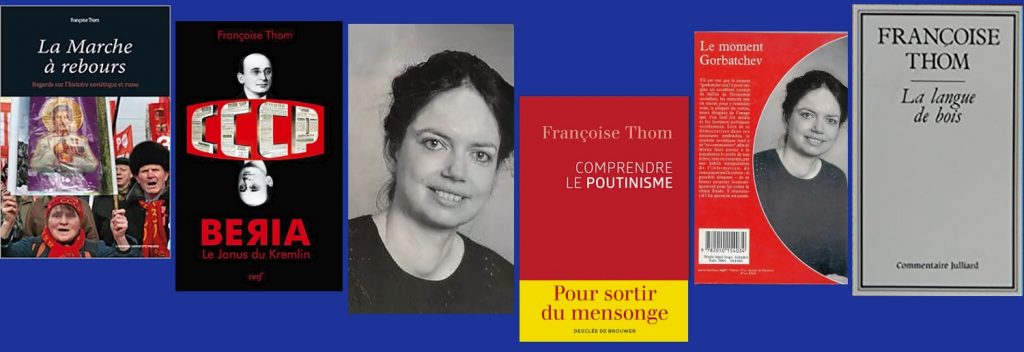
- ‘Economic Relations, an Underestimated Weapon in the Kremlin’s Hybrid War against the West – I. The Leninist Imprint’ » in Desk Russia — (2025-0911) —
- « Les échanges économiques, une arme méconnue dans la guerre hybride du Kremlin contre l’Occident (1) L’empreinte léninienne » in Desk Russia — (2025-0907) —
- « Wirtschaftsbeziehungen als verkannte Waffe im hybriden Krieg des Kremls gegen den Westen (1) Das leninistische Erbe » — (2025-0907) —
- ‘Cesspool and chaos: the Russian connection in the Epstein Affair’ in Desk Russia — (2025-0730)
- « Le cloaque et le chaos : la Russian connexion de l’affaire Epstein » in Desk Russie — (2025-0728) —
- „Die Kloake und das Chaos: Die russische Verbindung der Epstein-Affäre“ — (2025-0728) —
- « Клоака і хаос: російський зв’язок у справі Епштейна » — (2025-0728) —
- « La paille et la poutre : une réponse européenne aux idéologues trumpo-poutiniens » in Desk Russie — (2025-0708) —
- ‘The Pot Calling the Kettle Black: A European Response to Trump and Putin Ideologues’ in Desk Russia — (2025-0708) —
- ‘A Disaster of the First Magnitude’ in Desk Russia — (2025-0706) —
- « Toward a Putin–Trump Pact?‘ in Desk Russia — (2025-0430) —
- « Vers un pacte Poutine-Trump ?» in Desk Russie — (2025-0429) —
- ‘Russia’s Plan for the United States’ » in Desk Russia — (2025-0413) —
- « Le projet russe pour les États-Unis » in Desk Russie — (2025-0329) —
- ‘Vladimir Putin’s Twofold Revenge’ in Desk Russia — (2025-0304) —
- « La double vengeance de Vladimir Poutine » in Desk Russie — (2025-0303) —
- ‘The Lessons of Trumpism for Europeans: How to Avoid a ‘Self-Putinization’ of the EU’ » in Desk Russia — (2025-0225) —
- « Les leçons du trumpisme pour les Européens : comment éviter une autopoutinisation de l’UE » — in Desk Russie — (2025-0223) —

Desk Russie would like to remind you that Françoise Thom will be presenting a series of five lectures entitled ‘The Kremlin’s instruments and methods of power projection from Lenin to Putin’ as part of the Université Libre Alain Besançon. For more details and to register (in person)


